| | Mathison Museum of Natural History |  |
|
+17Birdsage Bonnie Saarlooswolfhound widukind Joliezac spacelab Pardofelis landrover Megaptera lucky luke rogerpgvg Jill George pipsxlch Duck-Anch-Amun Kikimalou Roger 21 posters |
|
| Author | Message |
|---|
Megaptera
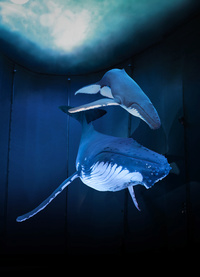
Country/State : Germany
Age : 34
Joined : 2017-11-11
Posts : 1950
 |  Subject: Re: Mathison Museum of Natural History Subject: Re: Mathison Museum of Natural History  Fri Sep 03, 2021 9:45 pm Fri Sep 03, 2021 9:45 pm | |
| I too have this Lemon shark. It's very well made. Thanks for All the facts of this species. |
|
  | |
Caracal
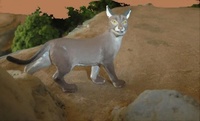
Country/State : France
Age : 65
Joined : 2018-10-24
Posts : 7252
 |  Subject: Re: Mathison Museum of Natural History Subject: Re: Mathison Museum of Natural History  Fri Sep 03, 2021 10:16 pm Fri Sep 03, 2021 10:16 pm | |
| |
|
  | |
widukind
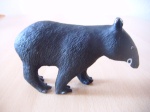
Country/State : Germany
Age : 48
Joined : 2010-12-30
Posts : 45745
 |  Subject: Re: Mathison Museum of Natural History Subject: Re: Mathison Museum of Natural History  Sat Sep 04, 2021 12:17 pm Sat Sep 04, 2021 12:17 pm | |
| There are many phantastic shark species in the world of figures |
|
  | |
bmathison1972
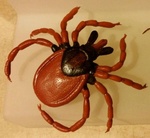
Country/State : Salt Lake City, UT
Age : 52
Joined : 2010-04-13
Posts : 6710
 |  Subject: Re: Mathison Museum of Natural History Subject: Re: Mathison Museum of Natural History  Sat Sep 04, 2021 1:02 pm Sat Sep 04, 2021 1:02 pm | |
| - widukind wrote:
- There are many phantastic shark species in the world of figures
Yes, and Safari Ltd. is leading the way! |
|
  | |
bmathison1972

Country/State : Salt Lake City, UT
Age : 52
Joined : 2010-04-13
Posts : 6710
 |  Subject: Re: Mathison Museum of Natural History Subject: Re: Mathison Museum of Natural History  Sat Sep 04, 2021 1:02 pm Sat Sep 04, 2021 1:02 pm | |
| Species: Allomyrina dichotoma (Linnaeus, 1771) (Japanese rhinoceros beetle) About the Figure: Manufacturer: Yell Series: Beetles on Wood Year of Production: 2020 Size/Scale: Body length (including horn) 6.0 cm, within scale 1:1 Frequency of species in toy/figure form (at time of posting): Very common Miscellaneous Notes: This is our fifth time seeing A. dichotoma in the Museum! Yell's 'Beetles on Wood' collection features many of the typical scarabaeoid species made by Japanese companies. The figures are sold in large slotted plastic balls (similar to cat toys) and come with a real piece of wood to display them with. I took it upon myself to use an adhesive to permanently affix the beetles to their piece of wood, making mini dioramas out of them. Yell released the same set of 12 beetles in 2021, albeit each with a plastic magnifying glass rather than a piece of wood; the name of that collection is 'Zoom'. About the Animal: Geographic distribution: Southeast Asia, including China, Korea, Taiwan, and Japan Habitat: Tropical and subtropical hardwood forests Diet: Larvae feed on organic detritus in soil; adults are attracted to sap flows IUCN Status (at time of posting): Not Evaluated Miscellaneous Notes: Allomyrina dichotoma is very popular in Japanese culture, and appears in cartoons, commercials, card games, and is commonly bred in terraria. This accounts for it being one of the most commonly-made animal species by Japanese companies (all five figures seen in the Museum to date have been by different Japanese companies). [You must be registered and logged in to see this image.] |
|
  | |
Caracal

Country/State : France
Age : 65
Joined : 2018-10-24
Posts : 7252
 | |
  | |
bmathison1972

Country/State : Salt Lake City, UT
Age : 52
Joined : 2010-04-13
Posts : 6710
 | |
  | |
widukind

Country/State : Germany
Age : 48
Joined : 2010-12-30
Posts : 45745
 |  Subject: Re: Mathison Museum of Natural History Subject: Re: Mathison Museum of Natural History  Sat Sep 04, 2021 8:34 pm Sat Sep 04, 2021 8:34 pm | |
| |
|
  | |
Caracal

Country/State : France
Age : 65
Joined : 2018-10-24
Posts : 7252
 | |
  | |
bmathison1972

Country/State : Salt Lake City, UT
Age : 52
Joined : 2010-04-13
Posts : 6710
 |  Subject: Re: Mathison Museum of Natural History Subject: Re: Mathison Museum of Natural History  Sun Sep 05, 2021 1:47 pm Sun Sep 05, 2021 1:47 pm | |
| Species: Rhaetulus speciosus Boileau, 1911 About the Figure: Manufacturer: Sega Series: Mushi King, standard series, small Year of Production: unknown Size/Scale: Body length (including mandibles) 5.2 cm, within scale 1:1 (1:1.3 for a large major male) Frequency of species in toy/figure form (at time of posting): Very rare Miscellaneous Notes: The Sega 'small standard series' were 10 sets of 10 figures each, for a total of 100 figures representing roughly 75 species of Lucanidae and dynastine Scarabaeidae. The dates of release are currently unknown to me (c. 2008). The figures were produced in conjunction with Bandai and came with Pokemon-style playing cards. At the time of this writing, I think I have all but two of the species. For a review of the sets, please see here. About the Animal: Geographic distribution: Southeast Asia, including India, Myanmar, Thailand, Vietnam Habitat: Tropical broadleaf forests Diet: Larvae feed in rotting wood; adults presumably feed on tree sap IUCN Status (at time of posting): Not Evaluated Miscellaneous Notes: I had trouble researching information on the biology and complete geographic distribution of this species. Some of the biological notes above are inferred from other members of the genus. [You must be registered and logged in to see this image.] |
|
  | |
widukind

Country/State : Germany
Age : 48
Joined : 2010-12-30
Posts : 45745
 |  Subject: Re: Mathison Museum of Natural History Subject: Re: Mathison Museum of Natural History  Sun Sep 05, 2021 6:39 pm Sun Sep 05, 2021 6:39 pm | |
| |
|
  | |
Caracal

Country/State : France
Age : 65
Joined : 2018-10-24
Posts : 7252
 | |
  | |
bmathison1972

Country/State : Salt Lake City, UT
Age : 52
Joined : 2010-04-13
Posts : 6710
 |  Subject: Re: Mathison Museum of Natural History Subject: Re: Mathison Museum of Natural History  Mon Sep 06, 2021 12:46 pm Mon Sep 06, 2021 12:46 pm | |
| Species: Anas castanea (Eyton, 1838) (chestnut teal) About the Figure: Manufacturer: Cadbury Series: Yowies UK Series 1 Year of Production: 1997 Size/Scale: Figure 4.2 cm tall. Scale difficult to calculate. Stretched out, the body length would approximately 7.0 cm for a scale of 1:5-1:6.5. Using bill length as a metric (0.7 cm), the scale would calculate to 1:5.3-1:6.2. Frequency of species in toy/figure form (at time of posting): Very rare Miscellaneous Notes: The only other figure of this species I am aware of is its Australian Yowies counterpart, which requires assembly. About the Animal: Geographic distribution: Southwestern and southeastern Australia, including Tasmania; vagrants reaching New Guinea, New Zealand, and Lord Howe Island Habitat: Coastal estuaries and wetlands, swamps, marshes Diet: Aquatic insects, snails, crabs, small fish, aquatic vegetation IUCN Status (at time of posting): Least Concern Miscellaneous Notes: Anas castanea forms monogamous pairs that stay together outside the breeding season. Nests usually occur in tree hollows and are lined with down; birds may also nest on the ground. Both parents incubate the eggs. [You must be registered and logged in to see this image.]
Last edited by bmathison1972 on Mon Sep 06, 2021 1:39 pm; edited 1 time in total |
|
  | |
Birdsage
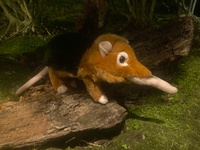
Country/State : United States/Texas
Age : 17
Joined : 2021-01-11
Posts : 908
 |  Subject: Re: Mathison Museum of Natural History Subject: Re: Mathison Museum of Natural History  Mon Sep 06, 2021 1:34 pm Mon Sep 06, 2021 1:34 pm | |
| There is an error in this common name. The Australian Anas castanea is called “chestnut teal”. “Cinnamon teal” is a different species, Spatula cyanoptera, found in the Americas. |
|
  | |
bmathison1972

Country/State : Salt Lake City, UT
Age : 52
Joined : 2010-04-13
Posts : 6710
 |  Subject: Re: Mathison Museum of Natural History Subject: Re: Mathison Museum of Natural History  Mon Sep 06, 2021 1:39 pm Mon Sep 06, 2021 1:39 pm | |
| - Birdsage wrote:
- There is an error in this common name. The Australian Anas castanea is called “chestnut teal”. “Cinnamon teal” is a different species, Spatula cyanoptera, found in the Americas.
Hahaha, Thank you for catching that!!! I've seen cinnamon teals birding here in Utah; must have been stuck in the back of my mind. |
|
  | |
Caracal

Country/State : France
Age : 65
Joined : 2018-10-24
Posts : 7252
 | |
  | |
widukind

Country/State : Germany
Age : 48
Joined : 2010-12-30
Posts : 45745
 |  Subject: Re: Mathison Museum of Natural History Subject: Re: Mathison Museum of Natural History  Mon Sep 06, 2021 7:08 pm Mon Sep 06, 2021 7:08 pm | |
| |
|
  | |
Saarlooswolfhound
Moderator

Country/State : USA
Age : 28
Joined : 2012-06-16
Posts : 12056
 |  Subject: Re: Mathison Museum of Natural History Subject: Re: Mathison Museum of Natural History  Mon Sep 06, 2021 8:37 pm Mon Sep 06, 2021 8:37 pm | |
| Great last few models. :) _________________ -"I loathe people who keep dogs. They are cowards who haven’t got the guts to bite people themselves."-August Strindberg (However, anyone who knows me knows I love dogs [You must be registered and logged in to see this image.] ) -“We can try to kill all that is native, string it up by its hind legs for all to see, but spirit howls and wildness endures.”-Anonymous |
|
  | |
bmathison1972

Country/State : Salt Lake City, UT
Age : 52
Joined : 2010-04-13
Posts : 6710
 |  Subject: Re: Mathison Museum of Natural History Subject: Re: Mathison Museum of Natural History  Tue Sep 07, 2021 12:47 pm Tue Sep 07, 2021 12:47 pm | |
| Species: Corvus macrorhynchos Wagler, 1827 (large-billed crow; jungle crow) About the Figure: Manufacturer: Kaiyodo Series: Choco Q Animatales Series 10 Year of Production: 2005 Size/Scale: Figure height 4.5 cm. Body length approximately 6.5 cm for a scale of 1:7-1:9 Frequency of species in toy/figure form (at time of posting): Very rare Miscellaneous Notes: Being one of the original Choco Q figures, some assembly is required. Kaiyodo previously made this species for the Chocoegg Animatales line and Eikoh made one for the Miniatureplanet line. About the Animal: Geographic distribution: East and Southeast Asia, Japan Habitat: Woodlands, open scrubland, agricultural fields, orchards, parks, gardens Diet: Carrion, small living animals, human refuse; will occasionally steal food from other birds, including raptors IUCN Status (at time of posting): Least Concern Miscellaneous Notes: Corvus macrorhynchos will sometimes form large groups and gang up on and attack other birds, especially raptors. [You must be registered and logged in to see this image.] |
|
  | |
Caracal

Country/State : France
Age : 65
Joined : 2018-10-24
Posts : 7252
 | |
  | |
spacelab
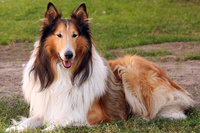
Country/State : Greece
Age : 53
Joined : 2019-02-19
Posts : 977
 |  Subject: Re: Mathison Museum of Natural History Subject: Re: Mathison Museum of Natural History  Tue Sep 07, 2021 5:44 pm Tue Sep 07, 2021 5:44 pm | |
| Me neither, though it looks much like a common raven. The figure is very interesting, even if it lacks the detailed feathers sculpting that is a common thing in Japanese models I guess. What I can't understand is why they didn't make a larger bill since it's the most prominent feature of this species if I get it right from its description.
I love the depth of your photo!
Last edited by spacelab on Tue Sep 07, 2021 5:56 pm; edited 1 time in total |
|
  | |
George
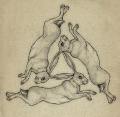
Country/State : England
Age : 41
Joined : 2021-04-05
Posts : 1599
 |  Subject: Re: Mathison Museum of Natural History Subject: Re: Mathison Museum of Natural History  Tue Sep 07, 2021 5:56 pm Tue Sep 07, 2021 5:56 pm | |
| What a handsome bird! It does remind me very much of a raven, I can almost hear the cronk, cronk call! |
|
  | |
widukind

Country/State : Germany
Age : 48
Joined : 2010-12-30
Posts : 45745
 |  Subject: Re: Mathison Museum of Natural History Subject: Re: Mathison Museum of Natural History  Wed Sep 08, 2021 5:20 am Wed Sep 08, 2021 5:20 am | |
| |
|
  | |
bmathison1972

Country/State : Salt Lake City, UT
Age : 52
Joined : 2010-04-13
Posts : 6710
 |  Subject: Re: Mathison Museum of Natural History Subject: Re: Mathison Museum of Natural History  Wed Sep 08, 2021 12:30 pm Wed Sep 08, 2021 12:30 pm | |
| Species: Brachypelma smithi (Cambridge, 1897) (Mexican red-kneed tarantula) About the Figure: Manufacturer: Kaiyodo Series: Capsule Q Museum - Toxic and Dangerous Animals Year of Release: 2014 Size/Scale: Legspan 7.2 cm. Body length (excluding appendages) 3.7 cm for a scale of 1:1.5 (could be 1:1 for a younger or smaller specimen) Frequency of species in toy/figure form (at time of posting): Common Miscellaneous Notes: Brachypelma smithi is probably the most common species of spider in toy form identifiable at the species level (if not tied with or second to the southern black widow, Latrodectus mactans). This is our third look at it in the Museum. Being a Capsule Q Museum figure, minimal assembly is required. About the Animal: Geographic distribution: Southside of the Balsas River Basin in Guerrero, Mexico Habitat: Tropical deciduous forests, thornscrub, semi-deserts Diet: Primarily insects and other arthropods, occasionally small reptiles, amphibians, birds, rodents. IUCN Status (at time of posting): Near Threatened Miscellaneous Notes: There is confusion to the identity of spiders referred to as Mexican red-knees, since the description of a cryptic sibling species, B. hamorii, by Cleton and Verdez in 1997. The two species are indistinguishable morphologically and can only be separated by DNA barcoding and strict geographic distribution. In the absence of a figure being specifically ascribed to a given species, I am referring to all figures as the classic B. smithi. Both species are very common in the pet trade (and don't be surprised if the pet store doesn't know which species they are selling). In captivity, female B. smithi can live 20 to 30 years! [You must be registered and logged in to see this image.] |
|
  | |
Caracal

Country/State : France
Age : 65
Joined : 2018-10-24
Posts : 7252
 | |
  | |
Sponsored content
 |  Subject: Re: Mathison Museum of Natural History Subject: Re: Mathison Museum of Natural History  | |
| |
|
  | |
| | Mathison Museum of Natural History |  |
|
